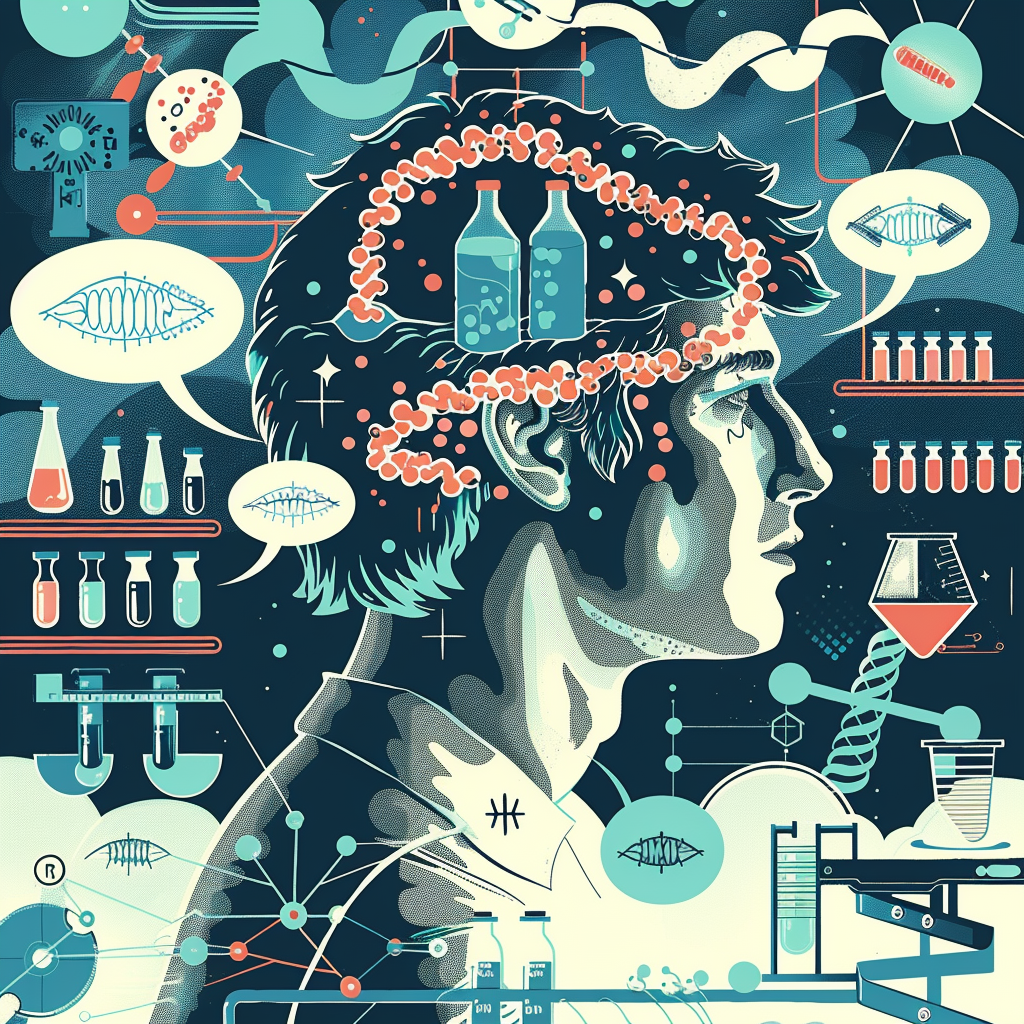Hey there, curious minds! Today, we’re diving deep into the fascinating world of genetics and its impact on male sexual health. Yep, you heard that right—our genes play a crucial role in everything from erectile function to libido levels, and recent studies have been shedding new light on the subject. So, grab a seat and get ready to explore the role of genetics in male sexual dysfunction, and what recent research has to say about it.
The Genetic Puzzle: What’s Inside Our DNA?
First things first, let’s talk about genetics. Our DNA is like the instruction manual for our bodies, containing all the information needed to build and maintain every aspect of who we are. And yes, that includes our sexual health. Certain genes are thought to influence everything from hormone levels and blood flow to neurotransmitter activity and tissue sensitivity—all of which can impact our sexual function and performance.
Recent Insights: What the Studies Say
Now, let’s get down to the nitty-gritty. Recent studies have been uncovering some fascinating connections between genetics and male sexual dysfunction. Here are a few key insights:
1. Genetic Variants and Erectile Dysfunction: Researchers have identified specific genetic variations that may increase the risk of erectile dysfunction (ED). These variations can affect everything from blood vessel function to nerve signaling, making it harder to achieve and maintain an erection.
2. Hormonal Influences: Our genes can also influence hormone levels, which play a crucial role in sexual health. Variations in genes related to testosterone, estrogen, and other hormones may impact libido, arousal, and sexual function.
3. Neurotransmitter Activity: Neurotransmitters are chemical messengers that play a key role in sexual arousal and pleasure. Recent studies have suggested that genetic variations in neurotransmitter receptors and transporters may affect sexual desire, response, and satisfaction.
The Big Picture: What It Means for You
So, what does all this mean for the average guy? Well, for starters, it means that male sexual dysfunction isn’t just a matter of lifestyle or psychological factors—it’s also influenced by our genetic makeup. Understanding these genetic influences can help us better identify and treat sexual issues, leading to more personalized and effective interventions.
What You Can Do
But what about you, dear reader? How can you use this knowledge to your advantage? Well, while we can’t change our genes, we can certainly take steps to optimize our sexual health and function. This might include things like maintaining a healthy lifestyle, managing stress, and seeking treatment for underlying medical conditions that may be contributing to sexual dysfunction.
Wrapping It Up
And there you have it—the role of genetics in male sexual dysfunction, as revealed by recent studies. While our genes may play a significant role in shaping our sexual health, they’re not the whole story. By understanding these genetic influences and taking proactive steps to support our sexual well-being, we can unlock the potential for a fulfilling and satisfying sex life. So, here’s to embracing our genetic differences, exploring our sexual potential, and living life to the fullest. Cheers to the fascinating world of genetics—and the amazing diversity of human sexuality!
Related Articles:
- Exposing the Hidden Threat: Environmental Toxins and Male Reproductive Health
- Revolutionizing Sexual Health: The Role of Stem Cell Therapy in Regenerative Medicine
- Realizing Vitality: Exploring Current Trends in Male Hormone Optimization
- Uncovering the Connection: Sleep Disorders and Erectile Dysfunction
- Fertility Fitness: Exploring the Impact of Lifestyle on Male Fertility
- Breaking Barriers: Novel Approaches to Erectile Dysfunction Treatment
- Revolutionizing Vitality: The Latest in Testosterone Replacement Therapy
- From Gut to Glory: The Surprising Link Between Gut Health and Male Sexual Function
- The Genetic Code: Understanding the Role of Genetics in Male Sexual Dysfunction
- The Future Looks Bright: Exciting Advances in Prostate Health



